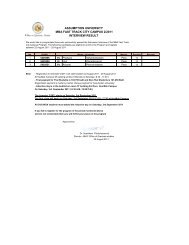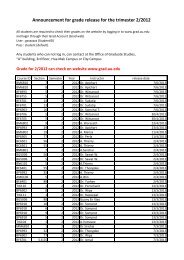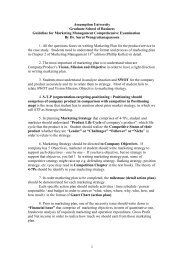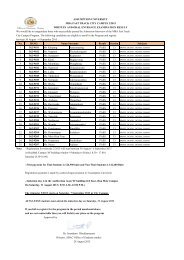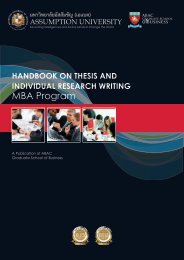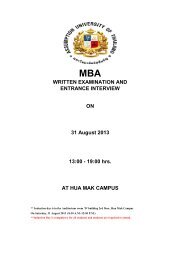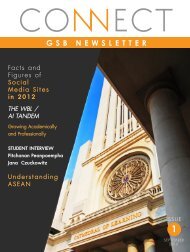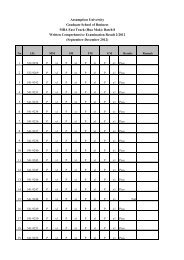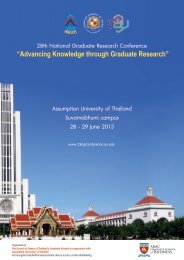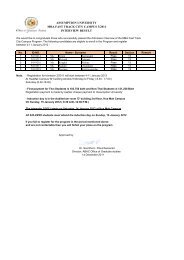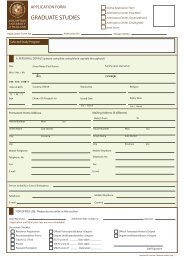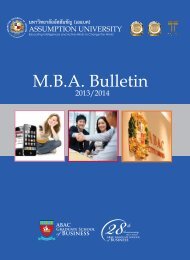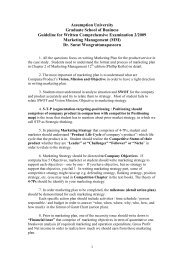STUDY SKILLS BOOK - Assumption University
STUDY SKILLS BOOK - Assumption University
STUDY SKILLS BOOK - Assumption University
- No tags were found...
Create successful ePaper yourself
Turn your PDF publications into a flip-book with our unique Google optimized e-Paper software.
EFFECTIVE DISCUSSIONIt is a valuable learning opportunity. You are receiving informationfrom several sources, not just from the tutor. You can ask questionswhen you don’t understand and sometimes have your problemssolved right away. Through discussion you can often learnsome things more thoroughly and effectively.How does discussion help to learn?a. Asking questions is a way of learning, rather than an admissionof ignorance. To be able to frame a question about a topic meansyou are starting to understand it. It is not until you begin to askquestions that find out what you really know.b. Many subjects are not really mastered without dialogue and discussion.This is especially true in the social sciences and humanities.,it is also true of the sciences and engineering. By the timeyou come here to study you have inevitably acquired a rag-bag ofbeliefs, assumption and mental habits concerning the world, ideasand the subjects you are studying. New concepts and ideas justget piled on the top of the world.Through discussion you quickly come to identify your mental blindspots. Having done so, you can learn the new material much moreefficiently.Preparing for discussionThe main topic for a seminar is usually announced in advance,together with suggestions for preparatory reading. Here are somesimple steps to prepare for a seminar/class.a. Do the work asked for, read any suggested referencematerials.b. Now write down two or three points about the work or readingthat you found most difficult. Write down the two or three pointsyou found most interesting.c. Look over any lecture notes handouts and complete essays relatingto the topics of the seminar/class. The seminar/class is likelyto be a good place to raise problems you have met in lectures or inyour own written work.At the seminar/classa. Take along the specified reading and any other material youthink might be relevant. The aim is for everyone to share what theyhave found out individually on the subject, and precise referencesare more useful than vague memories.b. Bring the points you had jotted down as especially difficult orinteresting into the discussion. They can be used to contribute tothe discussion and give your tutor some guidance to problems you<strong>STUDY</strong> <strong>SKILLS</strong> <strong>BOOK</strong> A GUIDE FOR STUDENTS 26



